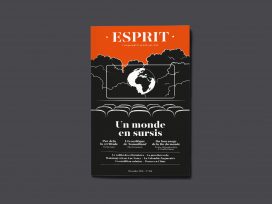

In collaboration with
CAIRN.info
Founded in 2005 by four Belgian and French academic publishers, Cairn.info offers the most comprehensive online collection of French journals in the various fields of humanities and social sciences. Its English interface, Cairn international edition, features tables of contents, abstracts and full-text articles (when available in English), as well as dossiers composed by specialized journalists, who take a look at current events through the prism of francophone scholarly publishing.
Cairn International Edition enables users to search, browse and read this content without speaking a word of French. Thousands of students, scholars and many others browse Cairn every day, with more than one million visits observed each year in non-francophone countries.

Articles

Bitching about it
Interview with Elena Diouf
Reappropriating stereotypes sends out a powerful message. And women of colour are putting themselves in a strong position, turning abusive rap into emancipation, overcoming issues of gender, class and race.

The findings of the recent inquiry into paedophilia in the French Catholic Church exceeded the worst expectations. But despite the shock and anger among Catholics and the wider public, the deep-seated conservatism within the Church is resisting the recommended reforms.

World on borrowed time
Esprit 2021/12
Climate change, COVID-19, social injustice: ‘Esprit’ explores how current notions of crisis affect our relationship with time and our (in)ability to change our circumstances. Also: the revolutionary origins of ‘la question Woke’.

An epidemic of fatigue
COVID-19 and mental health
With infection rates on the rise, restrictions are newly coming into force. Experience suggests that lockdowns have a harsher impact on certain sectors of society: young adults, especially those who are already vulnerable, face some of the pandemic’s worst consequences. Yet their needs often go unmet. A Franco-Canadian study suggests a revised approach.